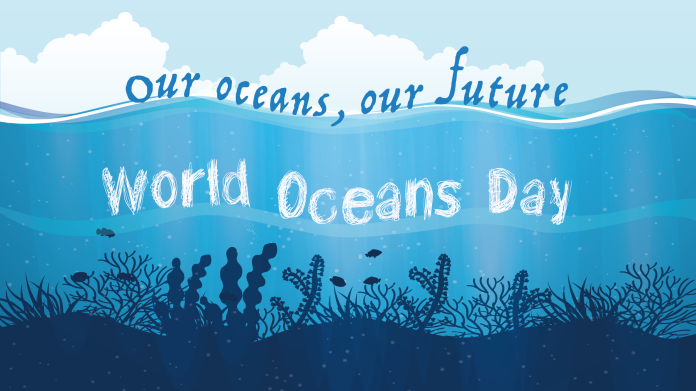Today, 8th of June we join the rest of the countries in the world to celebrate world oceans day 2023 under the theme, “Planet Ocean – Tides are changing”. About 97% of the earth’s water is in the ocean, making it the largest ecosystem.
Oceans cover approximately 70% of the earth’s surface and are home to an incredible array of marine species that play a crucial role in regulating the climate, providing oxygen and serving as a source of food and livelihood for millions of people, like the ocean-based industries which include marine fishing, aquaculture, fish processing, shipbuilding, maritime passenger transport and maritime freight transport.
Oceans serve as a vast interconnected system that impacts weather patterns, carbon absorption and global biodiversity. Despite all these benefits, unfortunately, the oceans face numerous threats like overfishing, pollution, habitat destruction, and climate change. These threats are becoming a toll on marine ecosystems. Plastic pollution in particular has become a global crisis with millions of plastic waste ending up in the ocean each year, causing severe harm to marine life and ecosystems.
The good news is that each and every one of us can contribute to the protection and restoration of the ocean hence, the United Nations (UN), has joined forces with governments, private sector executives, civil society representatives, scientists, celebrities and youth activists and more across the world to put the ocean first.
This year’s celebration presentations, panel discussions, integration and performances will be based on the collective need to put the ocean first, the ocean and climate interference, the untapped potential opportunities for the ocean, the cultural significance of the ocean, coastal stewardship of the ocean, creativity as a catalyst for global understanding and cross–discipline collaboration and systemic change.
World Oceans Day serves as a reminder that we all have a role to play in safeguarding our oceans that individuals, communities, and governments can take action:
Reduction of plastic consumption by minimizing the use of single-use plastics such as bottles, bags, and straws and opting for reusable alternatives and recycling plastic products properly.
Practising sustainable fishing will support sustainable fishing practices by consuming responsibly sourced seafood and following local fishing regulations.
Conserve water by reducing water usage at home to minimize the amount of runoff and wastewater entering the oceans.
Supporting marine conservation organizations by donating and volunteering with organizations dedicated to protecting marine ecosystems and species.
Promoting responsible tourism by choosing eco-friendly tour operators and avoiding activities that harm marine life or damage coral reefs.
Educating and raising awareness that will spread knowledge about the importance of oceans and the need for their protection through educational programs, events, and social media campaigns.
And advocating for policy changes. These will urge governments and policymakers to implement stronger regulations and initiatives to address ocean conservation and combat climate change.
Preserving the health and vitality of our oceans requires a collective effort. Governments must enact and enforce strong environmental regulations, invest in sustainable practices, and support marine protected areas. Businesses should adopt responsible practices to reduce their environmental footprint and promote sustainable alternatives. Individuals have the power to make a difference through their daily choices and actions.
On this World Oceans Day, let us reflect on the immense beauty and significance of our oceans. Together, let us commit to protecting and restoring these precious ecosystems for the well-being of present and future generations. By working together, we can ensure a sustainable future where our oceans thrive and continue to enrich our lives.


